
Bahla: The Enchanted Oasis of Oman
Nestled in the heart of Oman, Bahla is a city that seems to spring from the pages of a fairy tale. Known for its rich history and cultural heritage, Bahla is a must-visit for anyone seeking an authentic Arabian experience. The city's most famous landmark is the Bahla Fort, a UNESCO World Heritage site that stands as a testament to Oman's storied past. The fort's towering walls and intricate architecture offer a glimpse into the lives of those who once called this place home. Beyond the fort, Bahla is also famous for its pottery. The local artisans have been crafting beautiful, handmade pottery for centuries, and a visit to one of the pottery workshops is a delightful experience. You can watch the artisans at work and even purchase some unique pieces to take home as souvenirs. The city's souks are another highlight. Here, you can wander through narrow alleys filled with the scent of spices, the sparkle of jewelry, and the vibrant colors of textiles. Bahla is also a gateway to some of Oman's natural wonders. The nearby Jebel Akhdar, or Green Mountain, offers stunning views and is a great spot for hiking. The city's location makes it an ideal base for exploring the surrounding region, including the Wahiba Sands and the ancient city of Nizwa. Whether you're a history buff, a nature lover, or simply someone looking to immerse yourself in a different culture, Bahla has something to offer.
Local tips in Bahla
- Visit Bahla Fort early in the morning to avoid the crowds and the heat.
- Don't miss the Friday market in Bahla where you can find unique local products.
- Hire a local guide to learn more about the history and significance of the Bahla Fort.
- Plan a day trip to Jebel Akhdar for some stunning views and outdoor activities.
- Sample the local cuisine at one of the traditional Omani restaurants in the city.
- Carry cash, as many small shops and stalls in Bahla do not accept credit cards.
Bahla: The Enchanted Oasis of Oman
Nestled in the heart of Oman, Bahla is a city that seems to spring from the pages of a fairy tale. Known for its rich history and cultural heritage, Bahla is a must-visit for anyone seeking an authentic Arabian experience. The city's most famous landmark is the Bahla Fort, a UNESCO World Heritage site that stands as a testament to Oman's storied past. The fort's towering walls and intricate architecture offer a glimpse into the lives of those who once called this place home. Beyond the fort, Bahla is also famous for its pottery. The local artisans have been crafting beautiful, handmade pottery for centuries, and a visit to one of the pottery workshops is a delightful experience. You can watch the artisans at work and even purchase some unique pieces to take home as souvenirs. The city's souks are another highlight. Here, you can wander through narrow alleys filled with the scent of spices, the sparkle of jewelry, and the vibrant colors of textiles. Bahla is also a gateway to some of Oman's natural wonders. The nearby Jebel Akhdar, or Green Mountain, offers stunning views and is a great spot for hiking. The city's location makes it an ideal base for exploring the surrounding region, including the Wahiba Sands and the ancient city of Nizwa. Whether you're a history buff, a nature lover, or simply someone looking to immerse yourself in a different culture, Bahla has something to offer.
When is the best time to go to Bahla?
Iconic landmarks you can’t miss
Bahla Fort
Explore Bahla Fort, a UNESCO World Heritage site in Oman, and immerse yourself in centuries of history and stunning architecture.
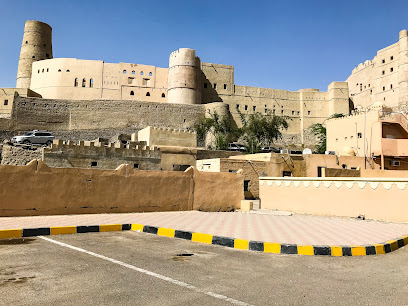
Jabreen Castle
Explore Jabreen Castle, a historical gem in Oman, showcasing stunning architecture and rich cultural heritage for an unforgettable travel experience.
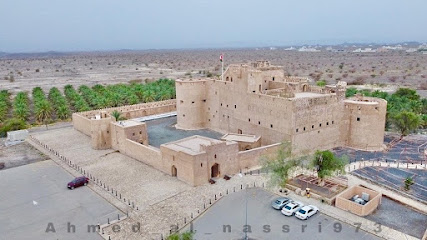
Bahla Historical Souq
Explore the Bahla Historical Souq, a vibrant market where Omani culture thrives through traditional crafts, local delicacies, and unique souvenirs.
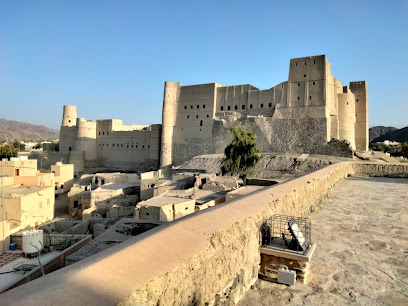
Bahla Gate
Explore Bahla Gate, a UNESCO World Heritage site in Oman, and step back in time to experience the rich history and breathtaking views of this iconic landmark.
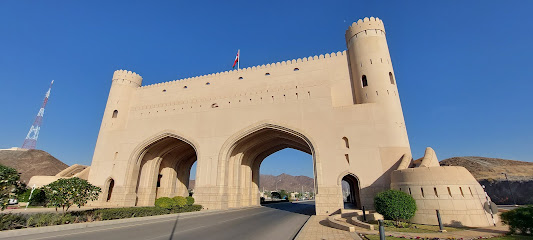
Ain Wadhah | عين وضاح
Experience the tranquil beauty of Ain Wadhah, a hidden gem in Oman's Bahla, perfect for nature lovers and cultural explorers alike.
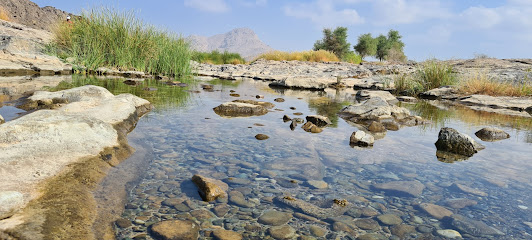
Bahla Historical Mosque
Experience the rich history and architectural beauty of the Bahla Historical Mosque, a cultural gem in the heart of Oman.
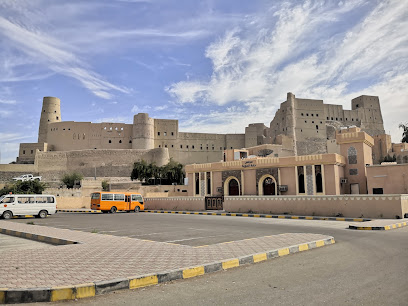
Wadi Bahla
Explore the stunning natural beauty and rich cultural heritage of Wadi Bahla, a UNESCO World Heritage site in Oman, perfect for an authentic travel experience.
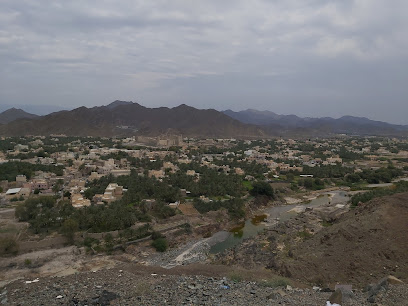
Bahla - Top View
Discover Bahla's breathtaking vistas from the observation deck, where history and stunning landscapes converge in a spectacular view.
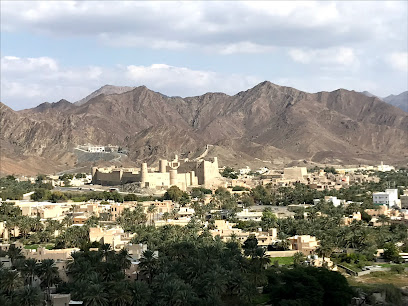
Bahla Top View
Discover stunning landscapes and rich heritage at Bahla Top View, the ultimate observation deck in Oman for breathtaking views and cultural insights.
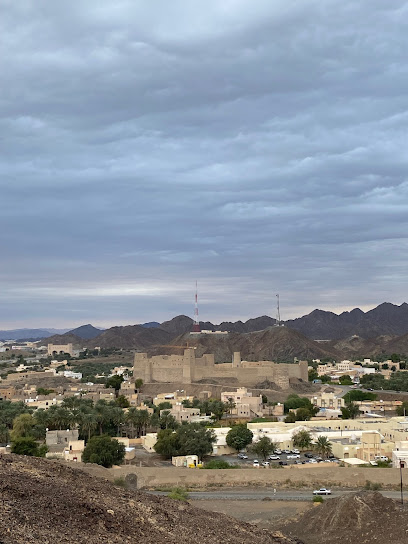
Horses rock
Explore Horses Rock in Bahla—an awe-inspiring historical landmark showcasing stunning rock formations and rich cultural heritage.
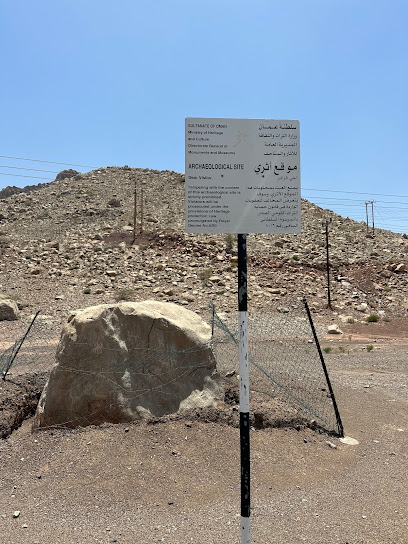
Sabah Salim (Bahla wall)
Discover the rich history and breathtaking architecture of Bahla Wall, a UNESCO World Heritage site and a true gem of Oman.
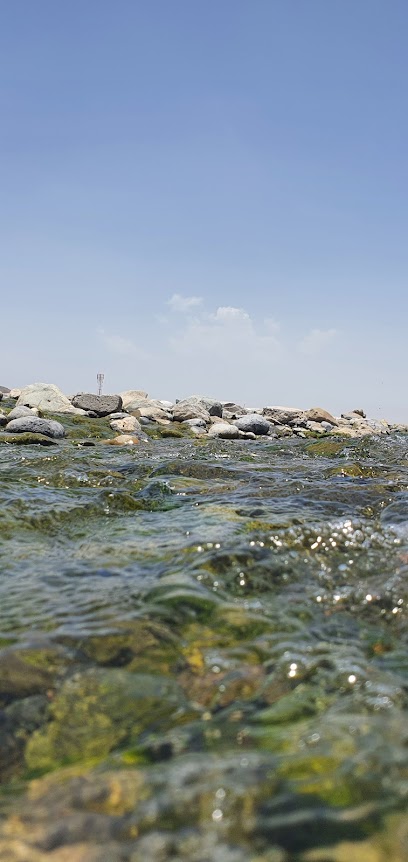
Bahla Oasis
Explore Bahla Oasis, a UNESCO World Heritage Site in Oman, where history, culture, and stunning landscapes converge for an unforgettable journey.
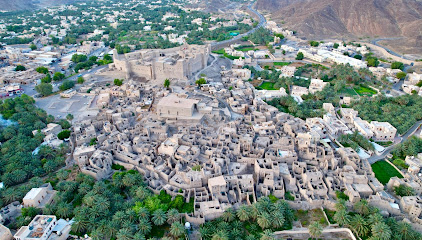
AL-Aqed Tower (Bahla Wall)
Explore the AL-Aqed Tower, a historical gem at Bahla Wall in Oman, where ancient architecture meets enchanting desert landscapes.
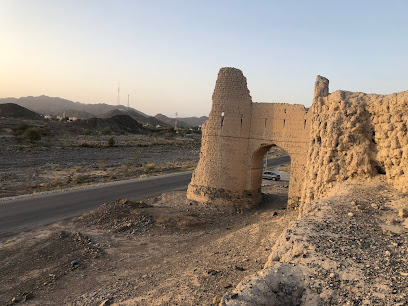
Harat Al-Aqer Bahla
Explore the historical richness and stunning architecture of Harat Al-Aqer Bahla, a must-visit landmark in the heart of Oman.
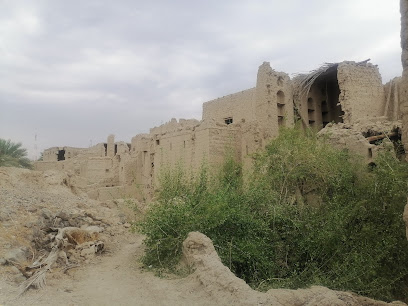
Harat Al-Hawiyah
Discover the historical charm of Harat Al-Hawiyah in Bahla, Oman – an architectural masterpiece reflecting the rich heritage of Omani culture.
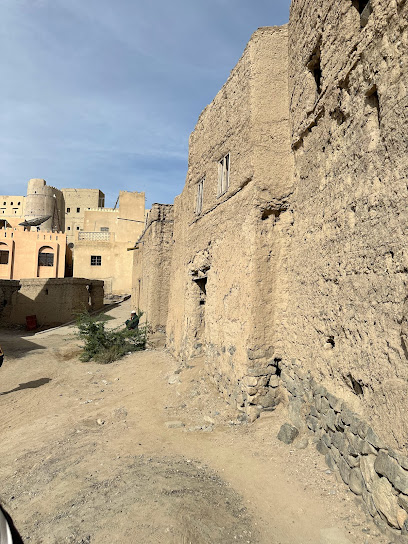
Unmissable attractions to see
Nizwa Fort
Discover the historical grandeur of Nizwa Fort, a magnificent fortress that encapsulates Oman’s rich heritage and stunning architecture.
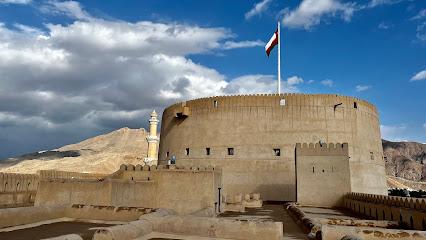
Bahla Fort
Explore Bahla Fort, a UNESCO World Heritage Site in Oman, showcasing stunning architecture and rich cultural heritage.
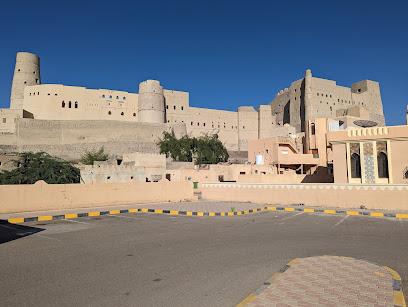
Al Hoota Cave
Discover the stunning Al Hoota Cave, a natural wonder in Oman featuring breathtaking formations and rich geological history, perfect for adventurous tourists.
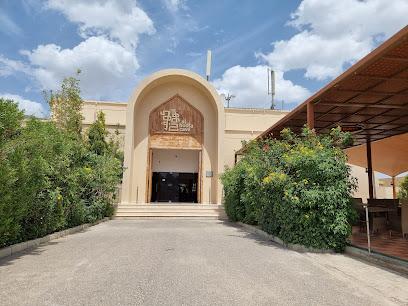
Falaj Daris Park
Discover the lush beauty of Falaj Daris Park in Nizwa, a tranquil garden oasis ideal for relaxation, family outings, and cultural exploration.
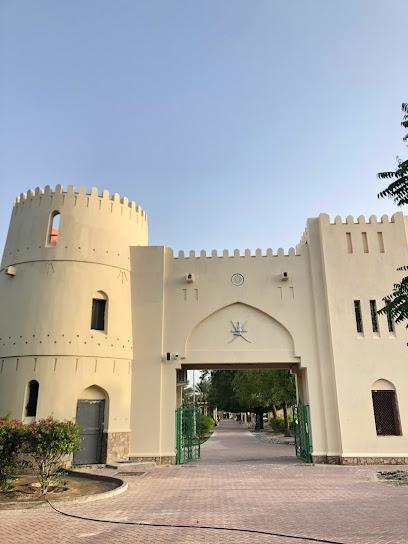
Jabreen Castle
Explore the historical grandeur of Jabreen Castle in Bahla, an architectural gem showcasing Oman's rich heritage amidst breathtaking scenery.
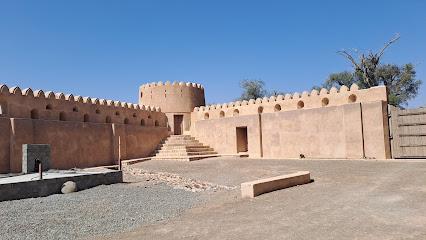
Jebel Shams
Discover the breathtaking views and thrilling hikes at Jebel Shams, Oman’s stunning mountain peak and the Grand Canyon of the Middle East.
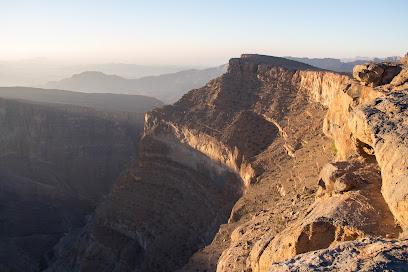
Wakan Village | قرية وكان
Discover the enchanting Wakan Village, a picturesque Omani destination boasting terraced landscapes, rich culture, and breathtaking hiking trails in the Hajar Mountains.
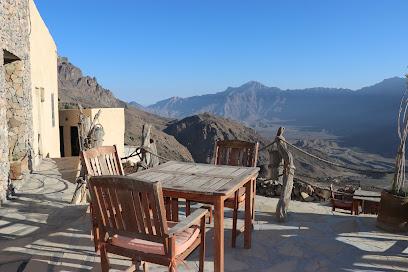
Jebel Akhdar
Experience the breathtaking landscapes and rich culture of Jebel Akhdar, Oman’s stunning Green Mountain, perfect for adventure and tranquility.
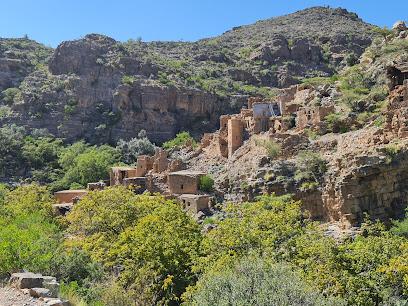
Ostrich Park |
Explore Ostrich Park in Oman, a unique family-friendly attraction where you can interact with and learn about the world's largest birds in a serene setting.
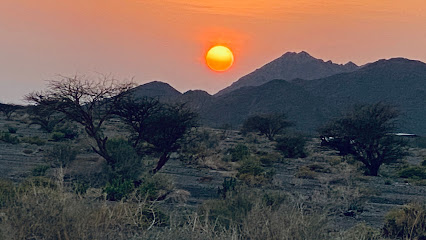
Wadi Al Nakhr
Discover the breathtaking beauty of Wadi Al Nakhr, Oman’s Grand Canyon, where adventure meets stunning natural landscapes.
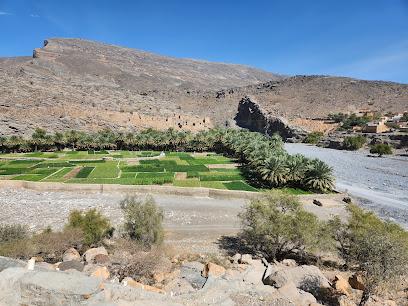
Tanuf Castle Ruins | أطلال حصن تنوف
Discover the rich history and breathtaking beauty of Tanuf Castle Ruins, a captivating Omani landmark steeped in culture and mystery.
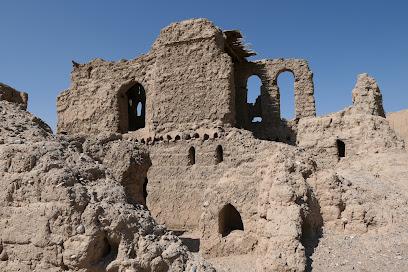
Adventure Snake canyon oman
Discover the thrill of hiking in Bima, Oman, where the stunning Snake Canyon offers adventure and breathtaking landscapes for every traveler.
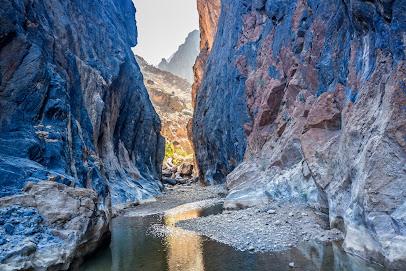
Old Al Hamra village
Explore the historical beauty of Old Al Hamra Village, a traditional Omani gem with captivating architecture and rich cultural heritage.
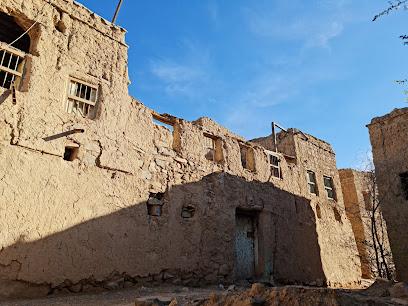
Snake Canyon adventures (Guide+ Tours)
Discover Bald Sayt, Oman – a thrilling outdoor paradise for hiking, rock climbing, and swimming amid stunning natural beauty.
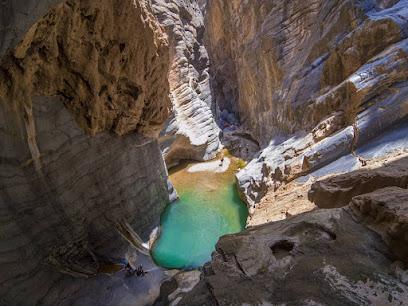
Bahla Gate
Discover Bahla Gate, a UNESCO World Heritage Site in Oman, reflecting the rich cultural heritage and stunning architecture of the region.
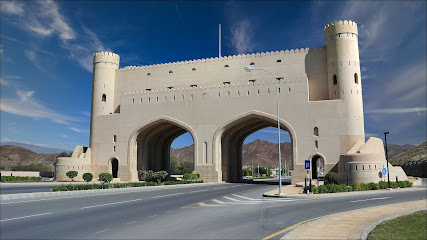
Essential places to dine
Italian Barrista Cafe
Experience authentic Italian cuisine at Italian Barrista Cafe in Nizwa - where every bite takes you on a flavorful journey.
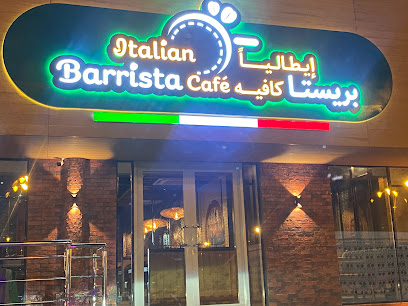
مطعم ريم اليمن
Discover the rich flavors of authentic Yemenite cuisine at مطعم ريم اليمن in Bahla - a culinary delight in Oman.
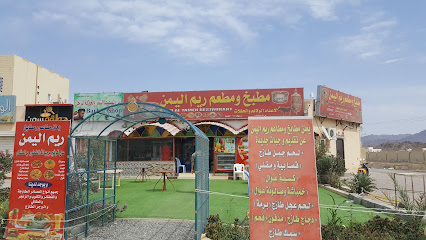
مطعم فوانيس بهلا Fawanees Bahla Resturant
Experience authentic Turkish cuisine at Fawanees Bahla Restaurant in Oman – where every dish tells a story.
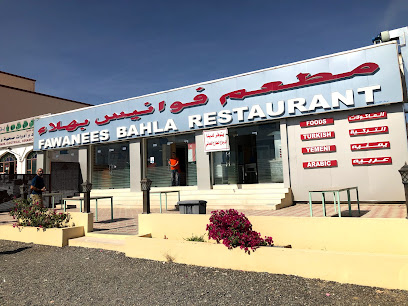
Tharanim Restaurant
Experience authentic Omani cuisine at Tharanim Restaurant in Bahla – where every dish tells a story.
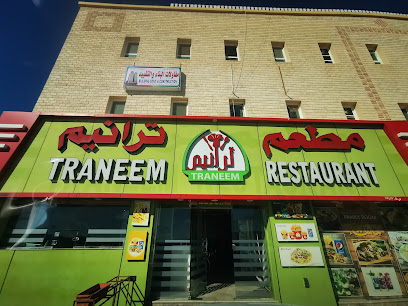
A Wahat Al Tabiya TRAD.restaurant
Discover the flavors of Oman at A Wahat Al Tabiya - where tradition meets taste in the heart of Bahla.
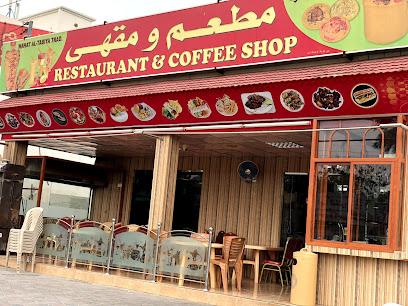
BAHLA MANDI Restaurant
Experience authentic Omani cuisine at BAHLA MANDI Restaurant in Bahla Mall - a perfect blend of tradition and taste.
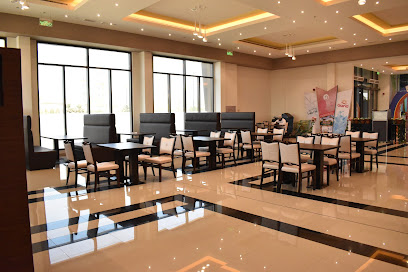
Al Haitham Catering
Experience authentic Omani flavors at Al Haitham Catering in Bahla - where every dish tells a story.
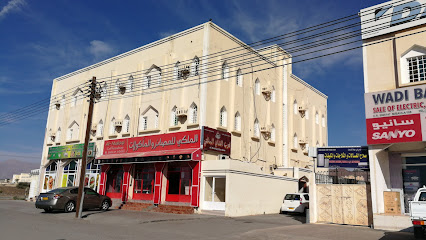
Al Shallal restaurant
Experience authentic Omani flavors at Al Shallal Restaurant in Bahla - where tradition meets taste.
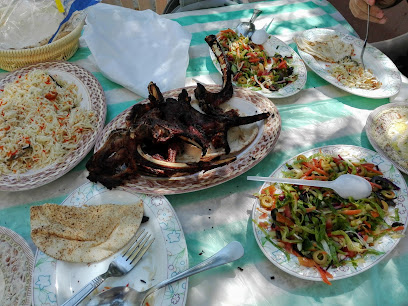
Fawanees bahla Turkey restaurant (2)
Discover the delightful flavors of Turkish cuisine at Fawanees Bahla, Oman’s family-friendly dining destination offering authentic dishes in a welcoming atmosphere.
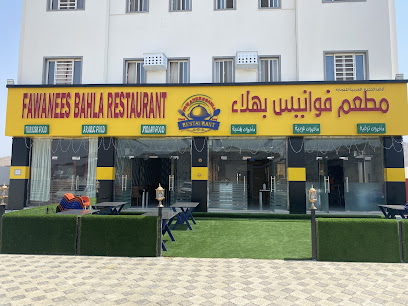
Deli Pizza
Experience the vibrant flavors at Deli Pizza in Bahla – where every slice tells a story!
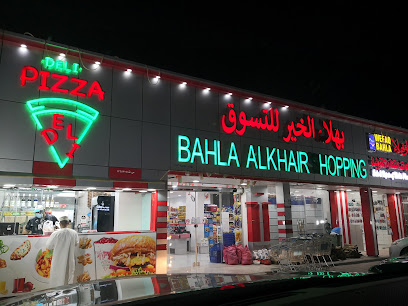
Areej Al Ward Cafe
Experience authentic Omani cuisine at Areej Al Ward Cafe in Bahla – where warm hospitality meets rich culinary tradition.
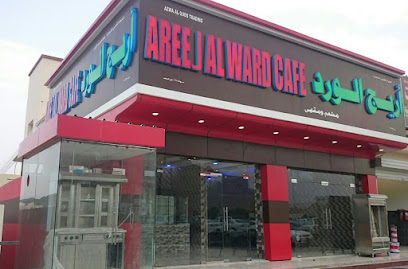
بوتيك سفرة حارتنا
Discover the delightful flavors of Oman at بوتيك سفرة حارتنا - a family-friendly dining experience in Bahla.
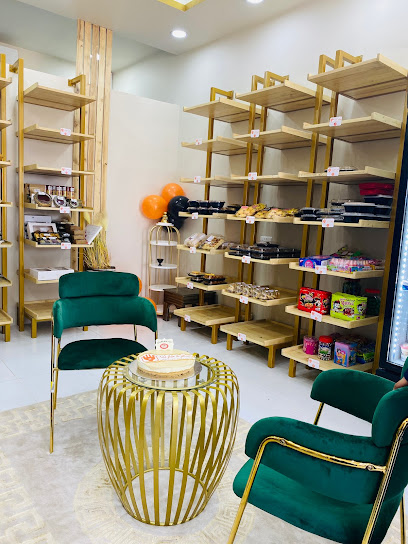
كرك الثمانينات
Experience authentic Omani cuisine at Karak Al-Thamanat in Al Hamra - where every dish tells a story.
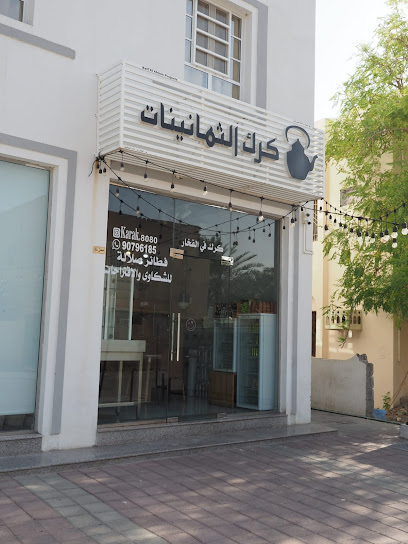
A' Sidrah Restaurant
Discover authentic Omani flavors at A' Sidrah Restaurant in Bahla – where tradition meets taste.
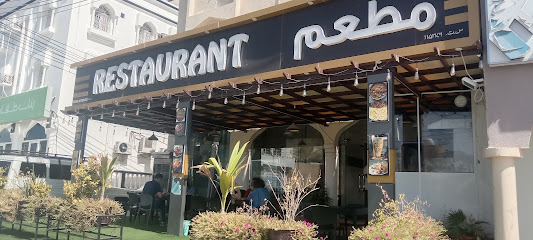
شيف كباب للمأكولات التركية
Savor the exquisite flavors of Turkey at شيف كباب للمأكولات التركية in Bahla - where every bite tells a story.
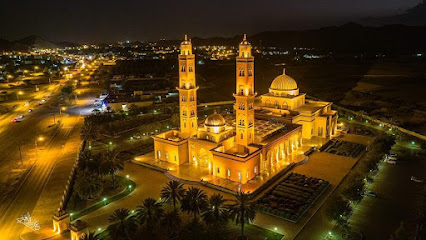
Markets, malls and hidden boutiques
BAHLA MALL Grand Hypermarket-بهلا مول جراند هايبر ماركت
Discover the vibrant Bahla Mall Grand Hypermarket, a shopping paradise in Oman featuring diverse shops, delicious food, and family-friendly activities.
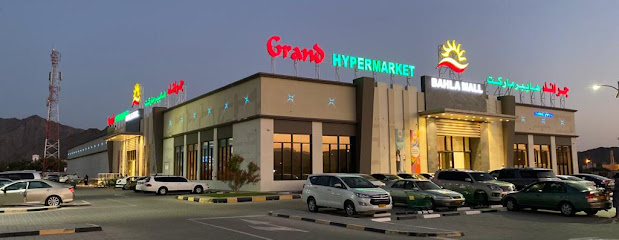
GIFT LAND BAHLA
Explore Gift Land Bahla, a vibrant shopping mall in Oman offering a wide range of fashion, household goods, and local crafts for every traveler.
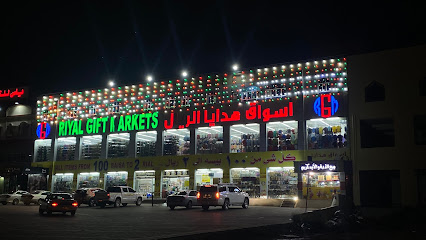
AL NAS HYPER MARKET
Explore local culture and shop for a variety of goods at Al Nas Hyper Market in Bahla, Oman - a must-visit shopping destination.
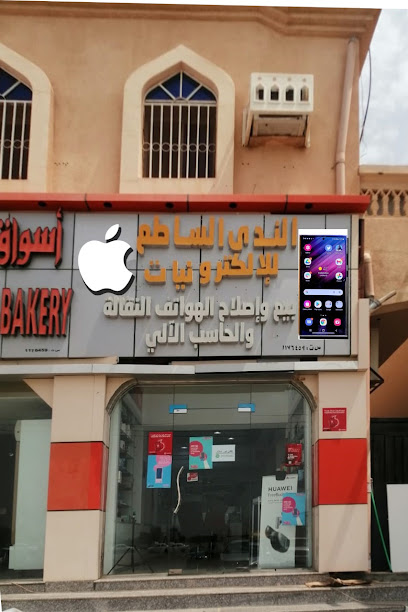
Al Endimaj Furniture & Decoration
Explore exquisite Omani craftsmanship at Al Endimaj Furniture & Decoration in Bahla, where unique furniture and decor await every discerning traveler.
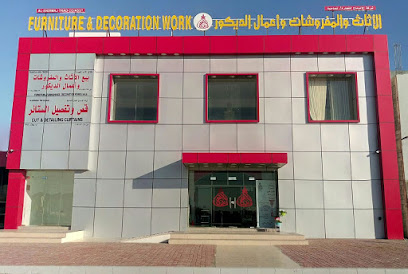
مشاريع سيف حماد لبيع المواد الغذائية
Discover the vibrant grocery shopping experience in Bahla at مشاريع سيف حماد, your gateway to authentic Omani ingredients and flavors.
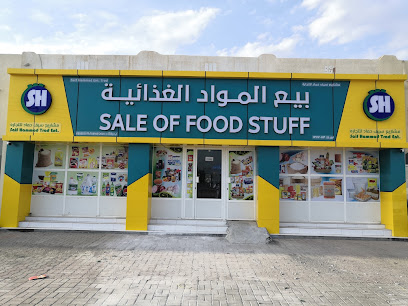
الأعشاب الطبيعية
Discover الأعشاب الطبيعية in Bahla, a vibrant supermarket bursting with local herbs, spices, and traditional Omani flavors.
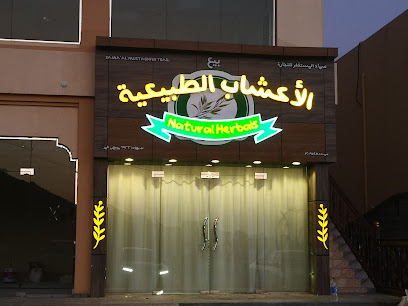
بوتيك استبرق الخير
Explore Estbraq Boutique in Bahla for a unique selection of vintage clothing, bags, and fabrics, reflecting Oman's rich culture and craftsmanship.
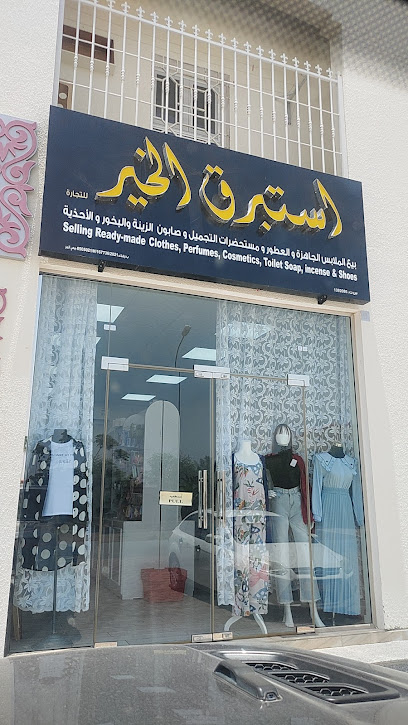
محل أنجوان Anjouan Shop
Explore the diverse flavors and local products at Anjouan Shop, the premier grocery destination in Bahla, Oman.
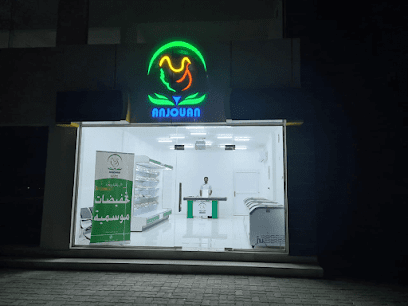
ARDH AL BATA'S TRADING
Discover authentic Omani craftsmanship at Ardh Al Bata's Trading in Bahla, a vibrant store showcasing local culture and unique souvenirs.
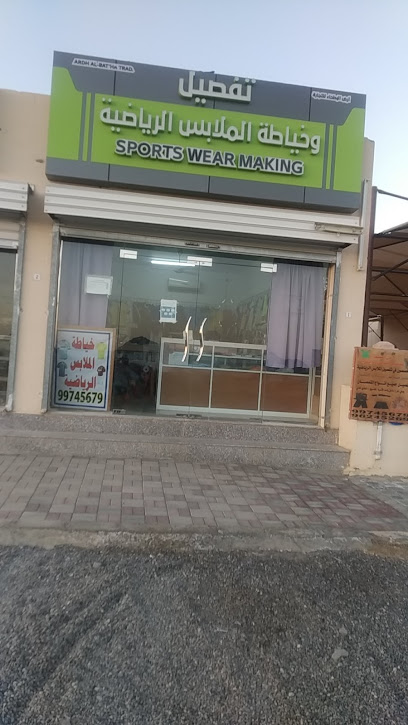
الراقي للخضروات و الفواكه (Alraqi For Vegetables And Fruits)
Explore the vibrant flavors of Oman at Alraqi For Vegetables And Fruits in Bahla, where fresh produce and local culture meet.
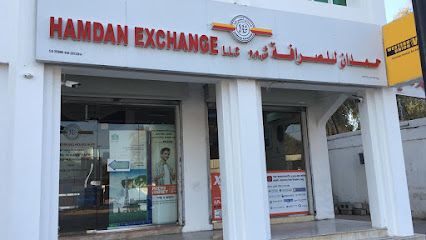
سرابيل بهلا
Explore سرابيل بهلا for a unique shopping experience in Bahla, Oman, where traditional craftsmanship meets modern style.
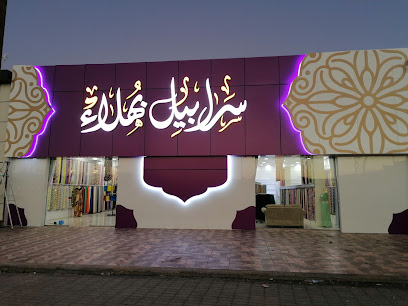
مجوهرات بهلا الحديثة
Explore مجوهرات بهلا الحديثة, a premier jewelry store in Bahla offering a unique blend of traditional craftsmanship and modern elegance.
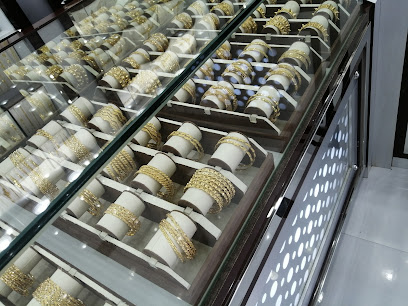
silven | سلڤن
Explore the exquisite jewelry collection at Silven in Bahla, where artistry meets tradition in every stunning piece.
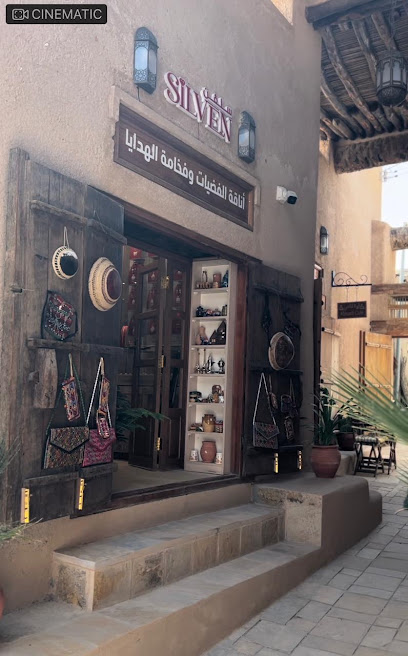
براشين للعود
Explore براشين للعود in Bahla for an authentic Omani gift shopping experience, featuring traditional oud and exquisite local crafts.
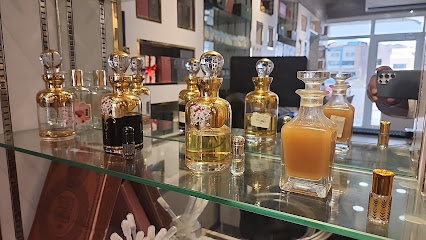
al Arabi Al Mumtaz Tailor
Discover bespoke clothing at Al Arabi Al Mumtaz Tailor in Bahla, where tradition meets modern fashion in every custom piece.
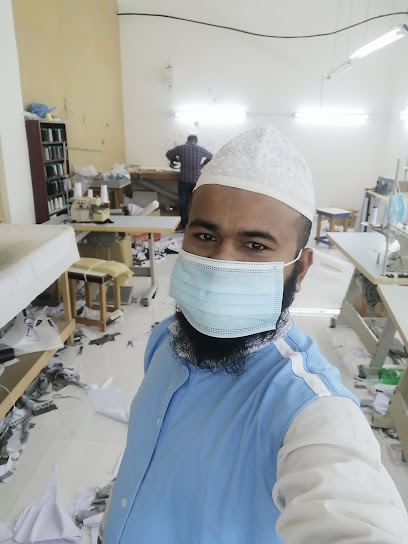
Essential bars & hidden hideouts
A Wahat Al Tabiya TRAD.restaurant
Discover authentic Omani flavors at A Wahat Al Tabiya in Bahla, a beloved restaurant perfect for travelers seeking local culinary experiences.
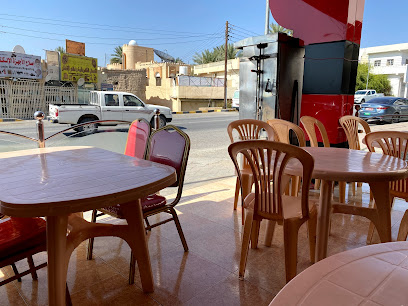
BAHLA MANDI Restaurant
Experience authentic Omani flavors at BAHLA MANDI Restaurant, nestled in the vibrant BAHLA Grand Hypermarket BAHLA MALL.
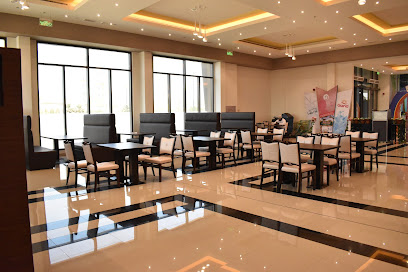
Ottavo Caffé
Discover the rich flavors of coffee at Ottavo Caffé, an espresso bar in Bahla offering artisanal brews and a cozy atmosphere.
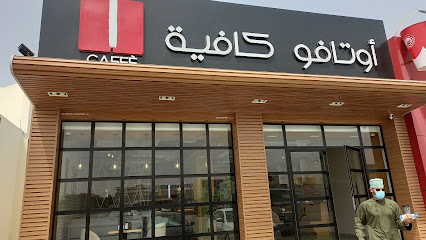
مقهى الوصال لتقديم الشيشة
Experience the vibrant atmosphere of مقهى الوصال لتقديم الشيشة in Hayy as Sa'ad, a must-visit hookah bar for tourists and locals alike.
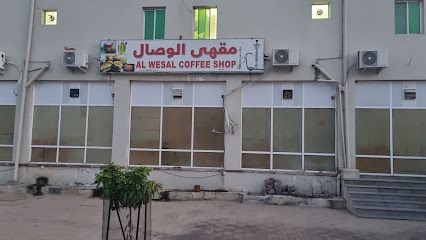
Lost cafe
Experience the warmth and flavor at Lost Cafe in Bahla, a perfect stop for coffee lovers and cultural explorers alike.
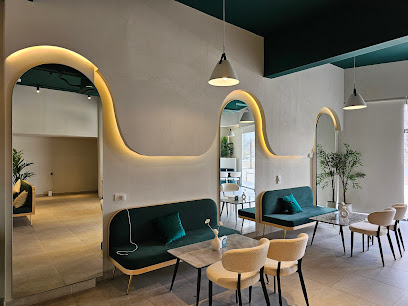
Oasis Castle Lounge
Discover the vibrant Oasis Castle Lounge in Nizwa, where exquisite drinks and lively ambiance create unforgettable memories.
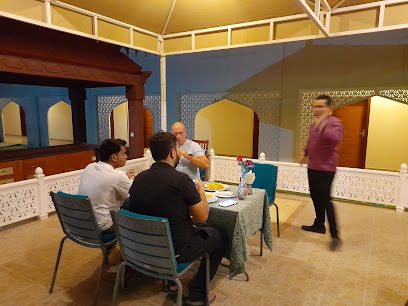
Juice Burg Oman, bahla
Discover the refreshing essence of Juice Burg Oman in Bahla, where fresh juices and aromatic coffees create a delightful retreat for travelers.
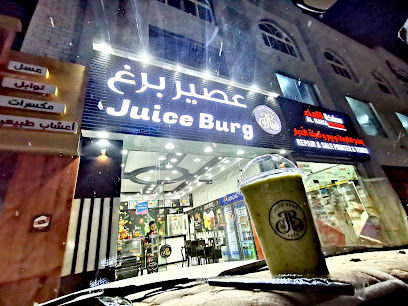
Sahara indian bar
Discover the vibrant flavors of India at Sahara Indian Bar in Nizwa, where delicious cuisine meets a welcoming atmosphere for an unforgettable experience.
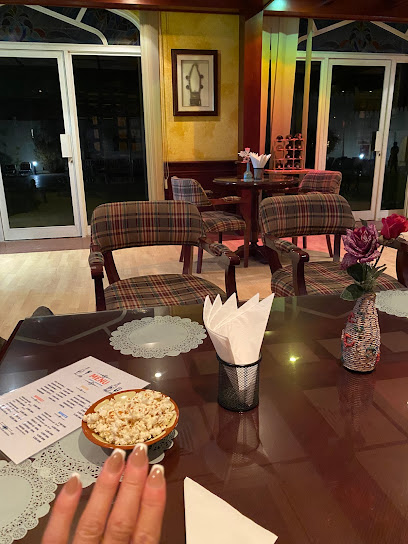
Red Light Area
Discover the lively nightlife of Nizwa's Red Light Area, where vibrant bars and local culture come together for an unforgettable experience.
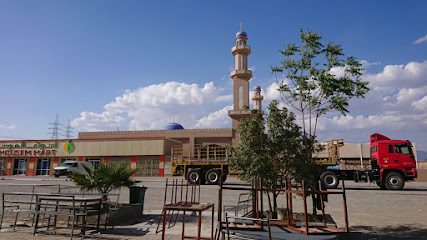
APPLEBEACH CAFE
Discover the flavors of Bahla at Applebeach Cafe, where traditional cuisine meets a warm and inviting atmosphere.
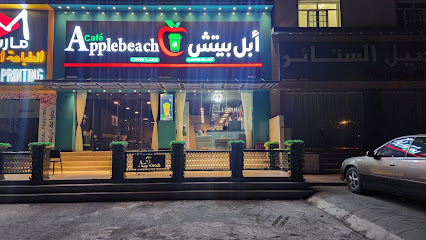
روافد فلج دارس
Experience the vibrant atmosphere of Rawaafid Falaj Daris in Nizwa, where local culture meets delightful beverages in a welcoming setting.

Sahara Arabic Bar
Discover the vibrant Sahara Arabic Bar in Nizwa, where traditional Omani hospitality meets an exciting nightlife experience with drinks and live music.
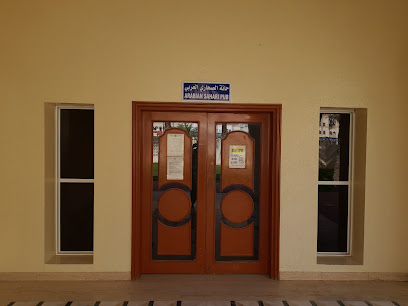
منزل محمد جلال البلوشي
Experience the vibrant social scene at منزل محمد جلال البلوشي, a charming bar in Al 'Uwayd, where Omani hospitality meets delightful refreshments.

اصلاح الثلاجات
Experience a serene retreat at the Lounge in Al Ghafat, where relaxation meets refreshment in a cozy atmosphere.

NEMAI MAJUMDER
Experience the vibrant nightlife at Nemai Majumder, a cultural bar in Samad Al Shan where tradition meets modern entertainment.

Travel experiences inspired by this city
Explore more travel diariesLocal Phrases
-
- Helloمرحبا
[marhaba] - Goodbyeوداعا
[wada'an] - Yesنعم
[naam] - Noلا
[la] - Please/You're welcomeمن فضلك / على الرحب والسعة
[min fadlik / ala alrahb wasa'a] - Thank youشكرا
[shukran] - Excuse me/Sorryعذرا
['udhran] - How are you?كيف حالك؟
[kayf halik?] - Fine. And you?بخير. وأنت؟
[bikhayr. wa'ant?] - Do you speak English?هل تتحدث الإنجليزية؟
[hal tatahadath al'inglizia?] - I don't understandلا أفهم
[la afham]
- Helloمرحبا
-
- I'd like to see the menu, pleaseأريد رؤية القائمة، من فضلك
[uriid ru'yyat alqaima, min fadlik] - I don't eat meatأنا لا أكل اللحم
[ana la akl allahm] - Cheers!في صحتك!
[fi sahtik!] - I would like to pay, pleaseأريد أن أدفع، من فضلك
[uriid 'an 'udfa', min fadlik]
- I'd like to see the menu, pleaseأريد رؤية القائمة، من فضلك
-
- Help!النجدة!
[alnajda!] - Go away!اذهب بعيدا!
[udhhab bai'dan!] - Call the Police!اتصل بالشرطة!
[itassil bilshurtah!] - Call a doctor!اتصل بطبيب!
[itassil bitabib!] - I'm lostلقد ضللت الطريق
[laqad dalalt altariq] - I'm illأنا مريض
[ana mareed]
- Help!النجدة!
-
- I'd like to buy...أريد شراء...
[uriid shira...] - I'm just lookingأنا فقط أتطلع
[ana faqat atatala] - How much is it?كم سعره؟
[kam sa'rahu?] - That's too expensiveهذا غالي جدا
[hadha ghali jiddan] - Can you lower the price?هل يمكنك خفض السعر؟
[hal yumkinuk khafd alsar?]
- I'd like to buy...أريد شراء...
-
- What time is it?كم الساعة؟
[kam alsaa'a?] - It's one o'clockالساعة الواحدة
[alsaa'a alwahida] - Half past (10)العاشرة والنصف
[al'ashira walnisf] - Morningالصباح
[assaabah] - Afternoonبعد الظهر
[ba'd aldhuhur] - Eveningالمساء
[almasa'] - Yesterdayأمس
[ams] - Todayاليوم
[alyawm] - Tomorrowغدا
[ghadan] - 1واحد
[wahid] - 2اثنان
[ithnan] - 3ثلاثة
[thalatha] - 4أربعة
[arba'a] - 5خمسة
[khamsa] - 6ستة
[sitta] - 7سبعة
[sab'a] - 8ثمانية
[thamania] - 9تسعة
[tisa'a] - 10عشرة
[ashara]
- What time is it?كم الساعة؟
-
- Where's a/the...?أين ...؟
[ayn ...?] - What's the address?ما هو العنوان؟
[ma huwa al'awn?] - Can you show me (on the map)?هل يمكنك أن تريني (على الخريطة)؟
[hal yumkinuk 'an tureeni (ala alkhari'tah)?] - When's the next (bus)?متى الحافلة التالية؟
[mata alhafilat altaliyah?] - A ticket (to ....)تذكرة (إلى ...)
[tazkirah (ila ...)]
- Where's a/the...?أين ...؟
History of Bahla
-
The history of Bahla dates back to the 3rd millennium BCE. The city has been a significant center for trade and culture due to its strategic location in the interior of Oman. Early settlers in the region were influenced by various civilizations, including the Persian and Mesopotamian empires.
-
Bahla Fort is one of the oldest and most impressive forts in Oman, constructed in the 13th and 14th centuries by the Banu Nebhan tribe. The fort complex includes a walled perimeter, watchtowers, and a mosque, showcasing traditional Omani architecture. In 1987, it was added to the UNESCO World Heritage list for its historical significance and architectural uniqueness.
-
During the medieval period, Bahla was the capital of the Banu Nebhan dynasty, which ruled much of the interior of Oman. The Banu Nebhan were known for their advanced irrigation systems, including the aflaj, which are still in use today. Their reign marked a golden era in Bahla’s history, contributing to its cultural and economic prosperity.
-
Bahla is renowned for its ancient aflaj irrigation systems, which are a testament to the ingenuity of its early inhabitants. These underground channels, some of which date back over a thousand years, were designed to transport water from distant sources to agricultural fields and settlements. They have been recognized by UNESCO for their historical importance and continue to be vital for local agriculture.
-
Bahla is famous for its traditional pottery, which has been a staple of the local economy for centuries. The town's potters create distinctive earthenware using local clay, a craft passed down through generations. The pottery is known for its durability and unique designs, making it a popular choice for both functional and decorative purposes.
-
Following the Omani Renaissance in the 1970s, Bahla experienced significant development and modernization. The town has managed to preserve its historical and cultural heritage while embracing new advancements. This period saw the restoration of Bahla Fort and other historical sites, ensuring that the town's rich history continues to be appreciated by future generations.
-
Bahla is not only a historical landmark but also a cultural hub in Oman. The town is known for its unique blend of traditional and modern lifestyles. Festivals, local markets, and cultural events are integral to the community, reflecting the town's enduring cultural heritage. The preservation of customs, crafts, and architecture makes Bahla a vital part of Oman's cultural identity.
Bahla Essentials
-
Bahla is located in the Al Dakhiliyah region of Oman. The nearest international airport is Muscat International Airport, approximately 200 kilometers away. From Muscat, you can rent a car or take a taxi for a scenic drive that takes around 2 to 3 hours. Alternatively, there are bus services operated by Mwasalat that connect Muscat to Bahla.
-
Bahla is a small town, and many of its attractions are within walking distance. For longer trips, local taxis are readily available. Renting a car is a popular option for exploring Bahla and the surrounding areas at your own pace. Public buses are limited, so having a car can be more convenient for visiting nearby sites like Jabrin Castle and the Bahla Fort.
-
The official currency in Oman is the Omani Rial (OMR). Credit cards are widely accepted in hotels, restaurants, and larger shops, but it is advisable to carry cash for smaller establishments and market purchases. ATMs are available in Bahla for cash withdrawals, but plan to have some cash on hand before arriving.
-
Bahla is generally a safe destination for tourists. The town has a low crime rate, but it is advisable to take standard precautions. Avoid walking alone at night in unfamiliar areas and keep an eye on your belongings in crowded places. There are no specific high-crime areas targeting tourists, but always stay vigilant and aware of your surroundings.
-
In case of emergency, dial 9999 for immediate assistance. Bahla has a local police station and medical facilities available. It is recommended to have travel insurance that covers medical emergencies. For minor health issues, there are pharmacies in the town where you can purchase over-the-counter medications.
-
Fashion: Do dress modestly, especially when visiting religious sites. Avoid wearing revealing clothing. Religion: Do respect local customs and traditions. Always remove your shoes and cover your head when entering mosques. Public Transport: Do be respectful and give up your seat to elderly passengers. Don't eat or drink on public transport. Greetings: Do greet people with a handshake. A slight bow of the head is also a sign of respect. Eating & Drinking: Do try local delicacies and accept food offerings graciously. Don't refuse hospitality, as it is considered impolite.
-
To experience Bahla like a local, visit the souq where you can buy traditional Omani crafts and pottery, for which Bahla is famous. Engage with locals, as they are often friendly and willing to share stories about the town's history and culture. Don't miss visiting the Bahla Fort, a UNESCO World Heritage Site. For a unique experience, explore the ancient ruins and the old city walls that reflect Bahla's historical significance.
Nearby Cities to Bahla
-
Things To Do in Nizwa
-
Things To Do in Rustaq
-
Things To Do in Ibri
-
Things To Do in Muscat
-
Things To Do in Sohar
-
Things To Do in Al Ain
-
Things To Do in Sur
-
Things To Do in Fujairah
-
Things To Do in Khor Fakkan
-
Things To Do in Dibba Al-Fujairah
-
Things To Do in Dubai
-
Things To Do in Ajman
-
Things To Do in Sharjah
-
Things To Do in Umm Al Quwain
-
Things To Do in Abu Dhabi










